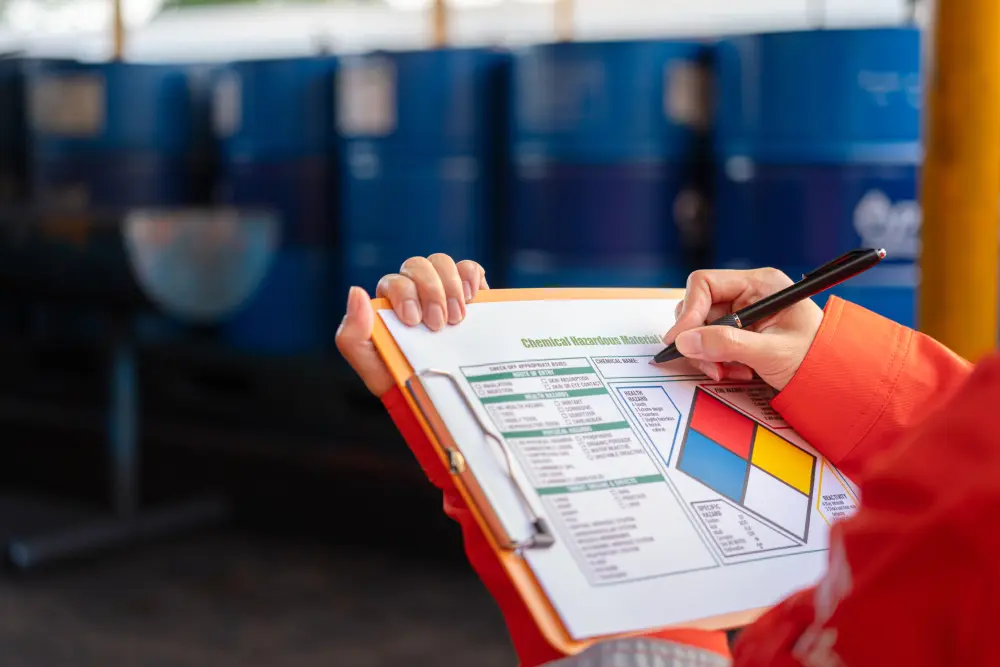Hazardous Waste Removal in Southern California: What Business Owners Need to Know

Managing hazardous waste is a critical responsibility for businesses across Southern California. Whether you’re a small automotive shop, a large manufacturing plant, or a medical facility, understanding how to handle, store, and dispose of hazardous materials is crucial—not only to avoid fines and legal issues but to protect your employees, customers, and the environment.
This article will guide you through the essentials of hazardous waste removal, covering what hazardous waste is, why proper disposal is important, and how to choose the right waste management partner.
What Is Hazardous Waste?
Hazardous waste refers to any material that is dangerous or potentially harmful to human health or the environment. This can include chemicals, solvents, metals, batteries, medical waste, and even electronic devices. The most common industrial hazardous waste falls under 4 main categories:
1. Ignitable: Materials that can easily catch fire, such as solvents or gasoline.
2. Corrosive: Substances that can corrode or eat away materials, like acids and strong cleaners.
3. Reactive: Chemicals that can explode or react violently under certain conditions.
4. Toxic: Materials that are harmful when ingested, inhaled, or absorbed, including certain pesticides and heavy metals.
In Southern California, businesses that generate these types of waste are required to follow strict state and federal regulations to ensure proper handling and disposal.
Why Proper Hazardous Waste Removal Is Essential
Failing to manage hazardous waste correctly can have serious consequences. The improper disposal of hazardous materials can lead to:
– Environmental Damage: Hazardous waste can contaminate soil, groundwater, and air, leading to long-term environmental issues that affect entire communities. Southern California has unique ecosystems and a densely populated landscape, making proper waste management even more critical.
– Health Risks: Exposure to hazardous waste can cause health problems ranging from mild skin irritation to serious conditions like respiratory issues or cancer.
– Legal and Financial Penalties: California has some of the strictest environmental laws in the U.S. Businesses that fail to comply with hazardous waste regulations can face steep fines, legal action, and damage to their reputation.
Regulations Governing Hazardous Waste in Southern California
In California, hazardous waste management is governed by both the federal Resource Conservation and Recovery Act (RCRA) and state-specific regulations enforced by the California Department of Toxic Substances Control (DTSC).
Some key rules include:
– Identification and Classification: Businesses must correctly identify and classify any hazardous waste they produce.
– Proper Labeling: Hazardous waste must be stored in containers that are properly labeled to indicate the type of waste and any associated risks.
– Storage and Transport: There are strict rules governing how hazardous waste must be stored and transported to ensure safety.
– Disposal: Hazardous waste must be disposed of at a licensed facility, and businesses must keep detailed records to prove compliance.
How to Choose a Hazardous Waste Removal Service
Choosing the right hazardous waste removal partner is essential for ensuring compliance with the law and protecting your business. Here are some factors to consider:
1. Licensing and Certification
Ensure that the waste management company is licensed by the state of California to handle hazardous materials. They should be well-versed in federal and state regulations to ensure your business stays compliant.
2. Experience
The more experience a company has with hazardous waste, the better. Look for a provider that has worked with businesses similar to yours in terms of industry and waste type.
3. Safety Protocols
Ask about the safety measures the company has in place to protect its workers, your employees, and the environment during the waste removal process.
4. Recycling and Disposal Practices
Choose a company that prioritizes environmentally friendly practices, such as recycling and waste reduction. Some hazardous materials can be recycled or treated to minimize their environmental impact.
5. Customer Service
Reliable customer service is key when dealing with hazardous waste. Your provider should offer clear communication, timely pickups, and proper documentation for every removal.
Best Practices for Managing Hazardous Waste
While your removal service will handle the actual disposal of hazardous waste, there are several things you can do to streamline the process:
– Train Your Employees: Make sure that all employees who handle hazardous waste are properly trained on how to store, label, and manage it.
– Regular Inspections: Conduct regular inspections of your facility to ensure compliance with storage and labeling regulations.
– Keep Detailed Records: Maintain records of your waste disposal activities, including the type of waste, amount, and disposal method. This will help you stay organized and provide proof of compliance in case of an audit.
– Minimize Waste: Where possible, look for ways to minimize the amount of hazardous waste your business produces. This could involve switching to less harmful materials or improving efficiency in your processes.
Conclusion
Hazardous waste removal is an essential part of running a business in Southern California. With the right knowledge and a reliable waste management partner, you can ensure that your business complies with local, state, and federal regulations while minimizing its environmental footprint. By following best practices and prioritizing safety, you can protect both your business and the community.
Taking proactive steps toward responsible hazardous waste management not only keeps your business in compliance but also strengthens your reputation as a responsible, eco-conscious organization. And in a world where environmental impact is increasingly important to consumers, this can be a valuable asset.
If you’re looking for a reliable partner in hazardous waste removal, be sure to choose a company with the right experience, certifications, and dedication to safety.
